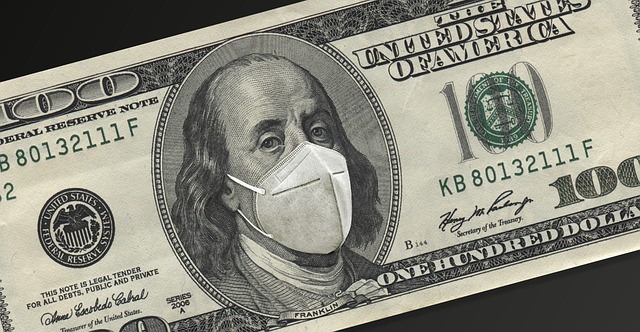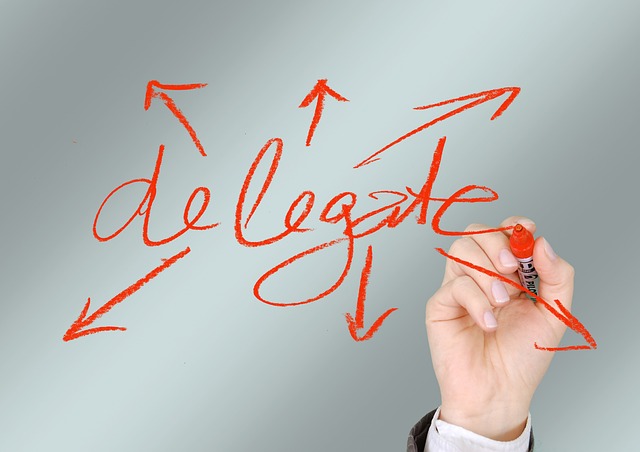Most people believe that if you lose your job, you will automatically lose your eligibility for unemployment benefits. That’s not entirely accurate because different states have different laws regarding this matter, and it also depends on the circumstances surrounding your termination. Will you still be eligible for unemployment benefits, for instance, if you were fired for misconduct like persistently missing work?
In the US, the general rule is that you are entitled to unemployment benefits unless you are fired for violating a reasonable rule of management that is uniformly enforced. One of those reasonable rules is typically thought to be attendance. But is the law consistently followed? Do other people who missed the same or comparable amounts of time also not get fired? If so, you might succeed in getting a job.
But, what to do if you are disqualified? What are the attendance termination laws by state? Please read on.
Table of Contents
Can You Collect Unemployment If You Get Fired for Attendance?
If an employee is let go for poor attendance, the state’s rules governing unemployment approval will determine whether tardiness and absence constitute misconduct. Based on the level of misconduct your state attributes to absenteeism, the unemployment agency in your state will determine whether or not you qualify for benefits.
By consulting official policy records from each of the 50 states and getting in touch with benefits offices, we learned about unemployment eligibility. During our research, we learned that benefits are typically only available to employees who have lost their jobs due to no fault of their own – attendance issues can disqualify you. Nevertheless, even if you are unsure of your eligibility, you can still apply for unemployment benefits after losing your job in any situation.
What Constitutes Misconduct?
All 50 U.S. states adhere to the “at-will” employment policy. This implies that neither employers nor employees are required to give notice before ending a job.
When it comes to terminating an employee for attendance issues, many states require employers to prove a certain level of misconduct or “just cause” for the firing, such as documentation of written and verbal warnings. Other states have a “disqualification period” during which an employee terminated for attendance misconduct does not qualify for benefits until the disqualification period ends.
What to Do If You Are Disqualified?
You have the right to appeal the initial determination if you believe that you were improperly denied unemployment benefits during the time frame that your state permits. On your notice of denial, you’ll also find instructions on how to file an appeal and a deadline for doing so.
If you are denied unemployment benefits, you will need to file an appeal. Whether you succeed in doing so will depend on your capacity to disprove your former employer’s assertion that your absences and/or tardiness constitute misconduct.

Attendance Termination Laws by State
Each state has its own rules regarding dismissal due to attendance problems, as was already mentioned. We looked at the policy documentation per state, and here are the findings:
- Except for Colorado, all states consider disobedience of an employer’s work rules and policies to be misconduct. These include consistently arriving late or leaving early, regardless of the reason.
- The caseworkers are required to investigate the seriousness of the misconduct, whether there were any prior warnings, and whether any corrective action was taken before discharge.
- Most states have a period during which you are not eligible to receive unemployment benefits as a punishment for being discharged for attendance. States like Nebraska and Vermont, for instance, have disqualification periods of 14–15 weeks. Some states, like Alaska, will defer your benefits for a month.
- Unfortunately, this disqualification period is absent in some states. If the employer can demonstrate that you repeatedly violated the established attendance policies, you will therefore be automatically disqualified from receiving unemployment benefits.
You can check out your state’s policy regarding unemployment benefits and job termination on your state’s website. Though these state policies are in place, keep in mind that each unemployment decision is made on a case-by-case basis.
For example, the Employment Development Department in California provides these general considerations to determine whether a person’s absence at work indicates an intentional disregard to the employer’s rules:
- Did the worker have approval to be away during that time?
- Was the reason for the absence compelling or urgent?
- Was it a singular occurrence, or has it happened previously as well?
- Have there been any prior warnings for unexcused absences, tardiness, or other infractions?
If the answer to any two to four of the aforementioned questions is NO, your termination was likely the result of gross misconduct, which could prevent you from receiving unemployment benefits. The state website clearly outlines and even gives examples of situations that can cause this to happen.
For instance, if a worker has missed or arrived late to work once due to a serious event like an accident, an acute illness, or a transportation lockdown, they will have a good reason to be eligible for unemployment benefits if their employer fires them.
The rules in North Carolina also add something else to think about:
- Does the company have a set policy defining the number of absences that qualify as excessive? The caseworker will consider additional factors to determine if the absences truly qualify as misconduct if there is a policy and the employee has flagrantly violated it.
- Did the employee let their manager know they would be away via phone call or text message?
- Did they complete it in a timely manner?
- Was the reason for the absence or lateness something they could have prevented?
- Can the employee provide evidence to support their absence, such as supporting letters or documents?
Your eligibility for unemployment benefits will be determined by your responses to these and the preceding questions.

Unemployment Investigations
Your state unemployment office will typically launch an investigation into your case once you apply for benefits and disclose that your previous employer fired you. You will be informed of the investigation and given instructions via phone call or letter. In many situations, a caseworker for unemployment will interview you so that you can explain your side of the situation. The caseworker will speak with your former employer to learn the details of your termination and will base their decision on both parties’ testimony and state law.
Rights of Fired Employees
Private employment is “at will” in most cases, meaning that employers can terminate their employees at any time, and for any reason—as long as it’s not illegal, discriminatory or in violation of a contract.
The right to receive unemployment benefits is one of the rights that terminated employees do have, provided they are eligible. Other rights of fired employees include:
- receiving their last paycheck.
- if the contract provides for it, paid severance.
- after leaving their employer, they could continue to receive health insurance through COBRA.
- notification in advance of a facility closure or a mass layoff.
Extended Unemployment Benefits
During times of high unemployment, the state may extend the standard 26-week period by an additional few weeks of benefits. These extended benefits are also provided through the state unemployment offices, and eligibility terms are posted online on the website and social media platforms. If you are eligible, you will probably be informed and given instructions on how to obtain once your regular unemployment benefits expire.
It should be noted that not everyone who receives regular benefits is qualified for extended benefits. Depending on their need and other factors, the state chooses who receives the extended benefits.
Conditions for Receiving Unemployment Benefits After Dismissal
If you’re one of the fortunate few who can receive unemployment benefits after being fired for poor attendance, be aware that there are some restrictions on these benefits. One is that you have to be actively looking for work; occasionally, the state will require evidence of this.
What if I find a job that I don’t like or want? is a question that is frequently asked about this subject.
You have to be willing to accept any “suitable work” that is offered to you, that is the requirement. By suitable, they mean the work should meet the following conditions:
- You ought to be able to perform it.
- It must be within a reasonable distance from your place and
- Pay must be reasonable and suitable for the position.
For instance, in New York, suitable employment is defined as employment within an hour’s commute. Additionally, the job should pay no more than 80% of the applicant’s prior salary. Pay should also reflect the standard or going rate for that type of work.
The unemployment office may also take into account other elements, including your physical condition, experience, length of employment, and prior earnings, as well as the level of risk associated with that job in some states, such as California. Your new position need not, however, be a match for your training and experience. You only need to be able to execute it.
When filling out the unemployment forms, you should mention any reasonable limitations on your ability to accept a job. For example, if you need a job near a bus line but can’t work nights due to one reason or another, you should include this in your restrictions.
Your eligibility for unemployment benefits may end if you decline to accept a position that qualifies as “suitable work.”
Most state laws also prohibit getting unemployment benefits at the same time as severance pay, but this doesn’t apply here because you can’t get severance pay when you get fired for misconduct.

Reinstatement of Unemployment Benefits
Your benefits may occasionally be suspended by the state unemployment agency for a variety of reasons and later reinstated. Here are a couple of instances where reinstatement of your unemployment benefits can occur:
- In some states, like Nebraska and New Jersey, if you were fired for regular misconduct that called for a penalty period, you would receive a 6–14 week sentence. The state may now resume paying you unemployment benefits after the penalty period expires.
- You’ve secured a temporary job that pays enough to justify stopping your unemployment benefits. You can apply to have your benefits reinstated if this situation changes and you are no longer earning that much money.
To reinstate your benefits in any of the aforementioned situations, get in touch with the agency and adhere to their instructions.
Please be aware that you are required to report all income, including that from odd jobs, regardless of how little it may be. You risk receiving a fine from state agencies for breaking the rules if you don’t do this. In most cases, even if you’ve taken on sporadic odd jobs, you’ll still receive unemployment benefits unless the pay is excessively high.
What About Partial Unemployment Benefits?
Even if you’ve found a part-time job that pays well but not enough, you may still be able to receive partial unemployment benefits. It will be an amount that is a portion of what you would receive if you were unemployed, and it is intended to help you supplement your meager income.
Partial employment benefits are given to:
- workers who were forced to work part-time or in underemployment after being fired or laid off.
- people whose remaining part-time job doesn’t pay well after they lost their first.
- You don’t include self-employment earnings and put in 30 hours or less per week while making $504 or less.
According to state law, each individual case is evaluated to determine eligibility for partial unemployment. Workers who voluntarily reduce their workweek, work part-time, or quit their job are not eligible for unemployment benefits (even partial benefits).
Can An Employer Contest An Unemployment Claim?
You have the right to dispute an unemployment claim that you believe to be false or unjustified as an employer. The state or federal unemployment office will notify you of any claims made by former employees and provide information about the termination.
You can now choose whether to accept or reject the claim. Remember that a worker may also appeal the denial of an unemployment claim. Make sure you have accurate and complete supporting documentation (a letter of termination, pay stubs, documented warnings, etc.) if you decide to contest an employee’s claim for unemployment.) in order to avoid an expensive employment lawsuit.
Getting Hired After Being Fired for Attendance
Even though it’s not impossible, it can be difficult to find work after being fired for poor attendance. The following tips may help you get back on track:
- Attempt to maintain contact with your previous employer.
- Better than no reference is one from a company employee, whether it be a former coworker or a former supervisor.
- Get to know your family and friends.
- A potential employer might be more willing to overlook your firing history if they can personally attest to your character.
- Be sincere and upbeat.
- Be honest about being fired when questioned about your previous employment, but make an effort to keep your response upbeat. Any less than ideal experiences should be framed as lessons you have taken away.
- Focus on the future.
- Accepting responsibility for your past failings is important, but you should also highlight your strengths and your growth when speaking with potential employers.
FAQs
Can I Get Unemployment If I Was Fired for Performance?
Discharges for poor (or unsatisfactory) performance will usually not disqualify a claimant from unemployment benefits. Inability to meet company standards is how most states define poor performance.
Can You Get Unemployment If You Get Fired for Stealing?
One of the rights that terminated employees may exercise, if they are eligible, is the right to unemployment benefits. There are also several forms of misconduct that would exclude a fired employee from collecting unemployment benefits: Theft; numerous absences with no valid excuse;
What to Say to Unemployment When Fired?
“I did my best!” By demonstrating a good faith error in judgment, the fact that it was an isolated error, or the fact that you simply weren’t good at your job, you can convince the judge that your actions were not improper. Being incompetent does not bar you from receiving benefits.



